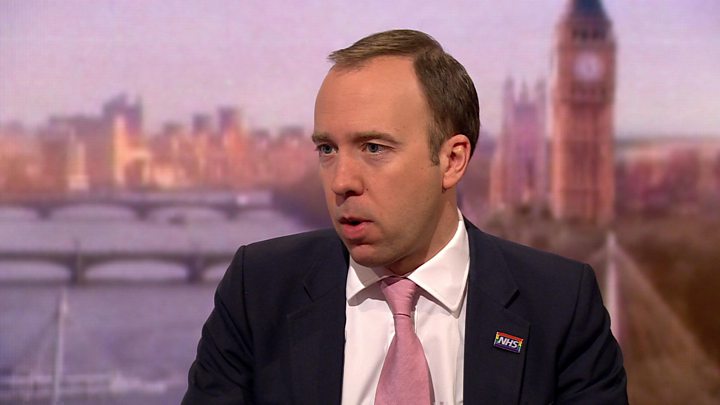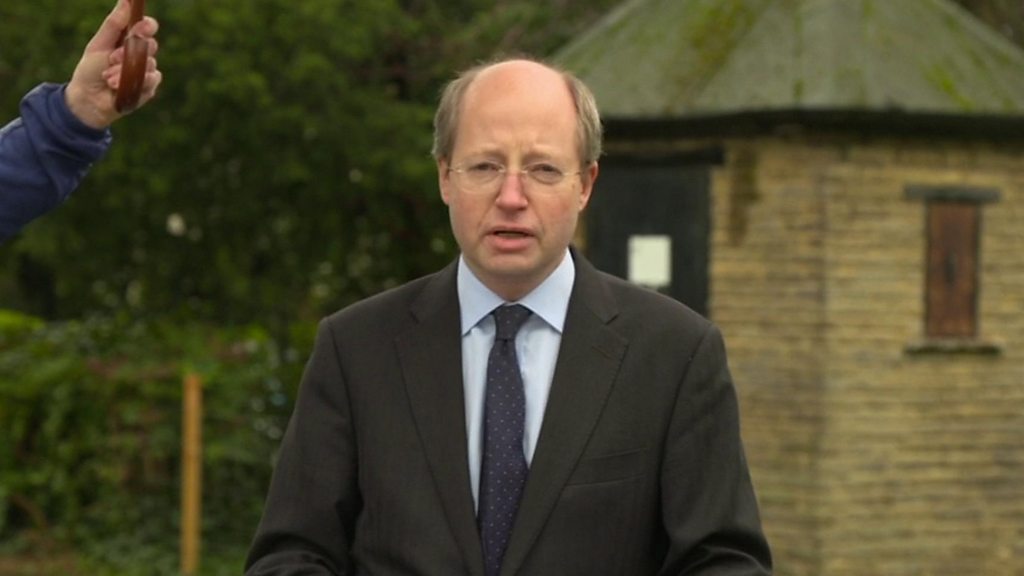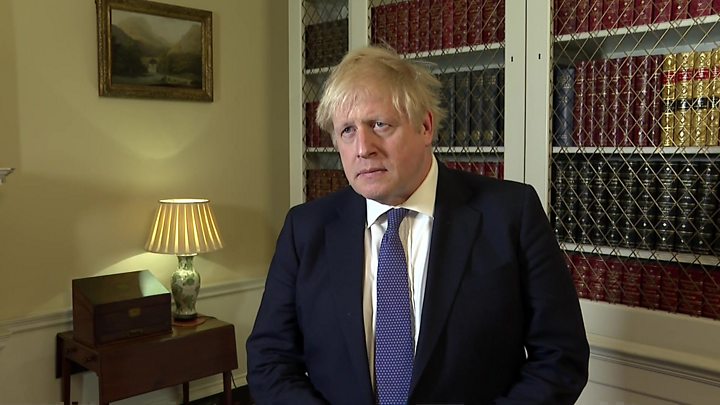Twelve more patients in England have tested positive for coronavirus, taking the total number of UK cases to 35.
Three patients were close contacts of a known case which was transmitted in the UK, chief medical officer Prof Chris Whitty said.
One person from Essex had "no relevant travel" and it was unclear how they had contracted the virus.
Out of the remaining eight cases, six had recently returned from Italy and two had been to Iran.
Prof Whitty said these patients were from London, West Yorkshire, Greater Manchester, Hertfordshire and Gloucestershire.
Bury Council confirmed that the Greater Manchester case was one of its residents, who had become infected in Italy.
On Friday, a man from Surrey became the first person to be infected within the UK.
The patient, who is being treated at Guy's and St Thomas' Hospital in central London, had not been abroad recently - unlike the other cases in the country.
As of 09:00 GMT on Sunday, the Department of Health said a total of 11,750 people had been tested in the UK.
The latest positive tests come after three more cases were confirmed in England on Saturday.
One of those was a member of staff at St Mary's School in Tetbury, Gloucestershire, the primary school said on Sunday.
That follows another school - Willow Bank Infant School in Woodley, Berkshire - confirming that one of its staff had been infected.

Media playback is unsupported on your device
The government has said no tactics will be "off the table" as part of its plan to contain the virus in the UK.
Health Secretary Matt Hancock told the BBC's Andrew Marr Show an emergency "battle plan", drawn up for the "worst case scenario", includes banning big events, closing schools and dissuading people from using public transport.
Mr Hancock said there were four phases to the plan:
- Containment - caring for any infected people and identifying their close contacts
- Delay - deciding what actions to take to slow down the spread
- Mitigation - damage limitation if the virus spreads widely
- Research - constant and ongoing work to inform the three other phases
Currently, the UK is in the "containment" phase - which health leaders say may still be sufficient.
But the next phase could see broader "social distancing" measures.
Mr Hancock did not rule out following China's lead in shutting down cities if the outbreak escalates, but said there was "clearly a huge economic and social downside to that".
Labour shadow health secretary Jonathan Ashworth said Mr Hancock must give more detail of any emergency powers he wants to bring in so that MPs "can properly scrutinise" the plans.
More than 200 British holidaymakers locked down at a quarantined hotel in Tenerife have been told they will be allowed to fly home, if they test negative for the virus.
The travellers have been quarantined at the H10 Costa Adeje Palace hotel since Tuesday after four Italians contracted the virus. Some have already been allowed to leave but others are awaiting test results.
The Foreign Office is in contact with operators and travel agents about their plans to return Britons to the UK.
What do I need to know about the coronavirus?
- WHAT ARE THE SYMPTOMS? A simple guide
- WAYS TO PREVENT CATCHING IT: How to wash your hands
- WHERE ARE WE WITH A VACCINE? Progress so far
- A VISUAL GUIDE TO THE OUTBREAK: Virus maps and charts
- WHAT DOES IT MEAN FOR MY HOLIDAY? Your rights as a traveller
Globally, around 86,000 people have been infected, with cases in more than 50 countries. About 3,000 people have died - the vast majority in China's Hubei province, where the outbreak originated in December.
In other developments:
- Foreign Secretary Dominic Raab has tested negative for the virus. The Foreign Office said he self-isolated after feeling unwell this week - and has returned to work since the test result
- In Paris, the Louvre museum did not open on Sunday. The museum said on Twitter a meeting was being held on the public health situation and "the museum cannot open at the moment".
- Australia and Thailand recorded their first fatalities from the virus on Sunday. A 78-year-old Australian man died after being infected on the quarantined Diamond Princess cruise ship in Japan. Thailand said the 35-year-old man who died of the virus had also been suffering from dengue fever
- The leader of a religious sect in South Korea - which is facing the worst outbreak outside China - could face a homicide investigation over some of the country's deaths. Lee Man-hee is accused of hiding the names of some members as officials tried to track patients before the virus spread
https://news.google.com/__i/rss/rd/articles/CBMiJGh0dHBzOi8vd3d3LmJiYy5jb20vbmV3cy91ay01MTY5Nzk5MdIBKGh0dHBzOi8vd3d3LmJiYy5jb20vbmV3cy9hbXAvdWstNTE2OTc5OTE?oc=5
2020-03-01 13:50:09Z
52780640525348



